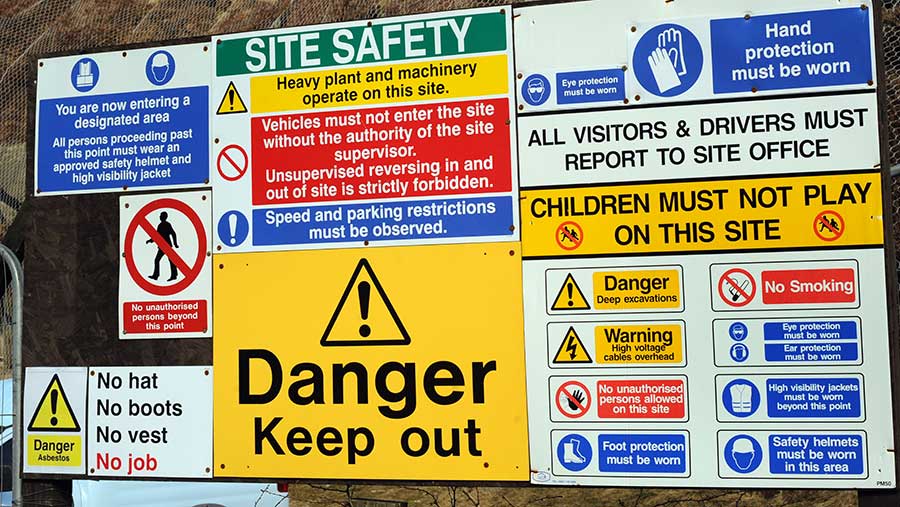Opinion: Has health and safety gone mad? Not really
 © Paula Solloway/REX/Shutterstock
© Paula Solloway/REX/Shutterstock
We used to have a neighbour called John Wade who built steel farm buildings for a living.
He had the look of Clint Eastwood about him and was one of the most meticulous and hard-working people I’ve ever met.
When he was erecting a shed he would run along the rafters 25ft in the air with a De Walt drill in both hands like a stuntman in an action movie.
See also: 13 tips to avoid poisonous gas when mixing slurry
I mention him in the past tense only because he retired a few years ago.
He claimed it was because the health and safety regulations were getting out of hand.
This was when it became necessary to fit hand rails and safety netting on construction sites.
That was too much for John.
As a plain-speaking Yorkshireman he felt very strongly that “if you fall off, it’s your own stupid bloody fault and you should die like a man”.
I guess eventually we all reach an age where the world has moved a bit far from our comfort zone.
Mind-focusing drop
John’s comfort zone was the mind-focusing prospect of dropping 25ft on to a hard surface with a cordless drill in his hand. Without that, the job lost its lustre for him.
As someone from a generation younger, I don’t find safety regulations particularly disruptive.
I have even hired a health and safety consultant to make regular spot checks on our farm and to hold minuted, quarterly meeting with all the staff.
I’m now not allowed to walk across the site without wearing a bright pink, high-visibility tabard.
I look more like a character on a CBeebies set than a farmer these days, but I bear this indignity stoically in the name of accident prevention.
Risk
The area where my attitude to risk is challenged is when it comes to food safety auditing.
We supply most of the major supermarkets and submit to 10 different, independent audits.
Recently we failed an audit because the inspector found Snickers in the vending machine in our staff canteen. We are supposed to be a peanut-free site Matthew Naylor
Every year we face an extra question asking for our strategy to prevent some new and highly improbable scenario. I call this the annual FFS question.
Offending Snickers
Recently we failed an audit because the inspector found Snickers in the vending machine in our staff canteen. We are supposed to be a peanut-free site.
I had to spend £7 buying all the offending Snickers. I made a huge pantomime of this and tip-toed theatrically across the yard holding them in front of me like they were live hand grenades.
This became my “story of the week” and everyone I told tutted along agreeing that the world has gone mad.
That was until Friday when I told someone and he said: “Quite right too. My son has a peanut allergy. If he came into contact with a peanut, he could die.” He pulled a very serious face which I didn’t enjoy looking at.
Responsibility
In the same way it shouldn’t be up to men to decide what constitutes sexism or for white people to decide what isn’t racist, it probably isn’t right for me, as someone who doesn’t have an allergy, to define what constitutes a reasonable risk to other people.
I’m a food producer and I have to accept that in today’s world this now falls within my responsibility.
As farms get bigger, the risks become larger and business owners have more people to who they must answer.
This scrutiny takes many farmers out of their comfort zones, but I suspect that it is something we will have to get used to.
